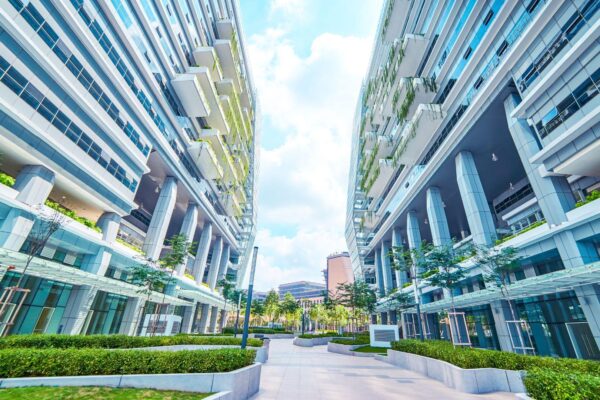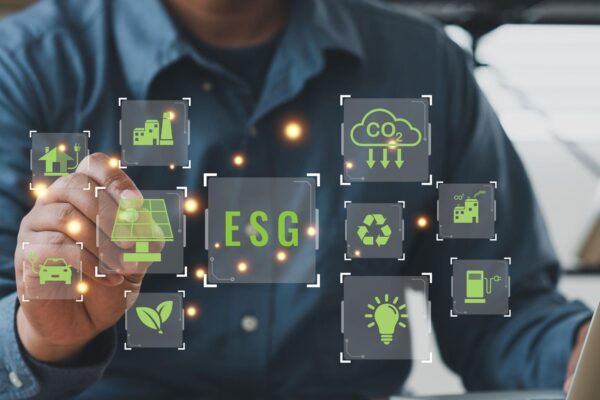Water is an essential resource for everyday life. The need for adequate water availability needs to be supported by sustainable infrastructure, especially in urban areas. Sustainable water management in growing cities is essential to ensure a resilient and healthy urban environment.
Read other articles : How Business Contribute to SDG 13: Climate Action
Effective urban water management addresses challenges such as water scarcity, pollution, and flooding, while promoting efficient use, equitable distribution, and environmental conservation. To address these challenges, cities need innovative and sustainable solutions that combine technological advances, community engagement, and nature-based strategies. Here are some key approaches:
Table of Contents
Toggle1. Water Recycling and Reuse
One of the ways to manage water in urban areas is through a water recycling system. Through this system, wastewater is treated to make it suitable for non-potable uses such as irrigation, industrial processes, and toilet flushing. Advanced technologies, such as membrane filtration and reverse osmosis, allow for higher quality recycled water, potentially suitable for drinking. Some developed countries, through the water initiative, have successfully implemented large-scale water recycling programs, significantly reducing dependence on external water sources.
2. Rainwater Harvesting
Another method that can be done to manage water in urban areas is by using the rainwater harvesting method. Rainwater capture and storage can complement the city’s water supply, especially in areas with seasonal rainfall. Rooftop rainwater harvesting systems are cost-effective and relatively easy to implement in urban environments. In addition, large-scale rainwater harvesting through retention basins and urban wetlands can reduce flooding and recharge groundwater.
3. Green Infrastructure
Growing green infrastructure is another solution to manage the water resources in cities. The green infrastructure that incorporates natural systems can be done through ‘green roofs’ which have vegetative layers on building rooftops. These vegetative layers then absorb rainwater, reduce heat, and improve air quality. Another green infrastructure is urban forests and parks. This infrastructure provides shade, absorbs rainwater, and reduces the urban heat island effect.
4. Smart Water Management

Smart technologies, such as Internet of Things (IoT) devices and data analytics, enable efficient water management. One of the IoT devices is smart meters, this device can monitor water usage in real time, helping utilities identify leaks and consumers manage consumption. Additionally, predictive models using artificial intelligence can optimize water distribution, detect pipe failures, and plan for extreme weather events.
5. Renewable Energy for Desalination
To manage the water, urban areas can also utilize renewable energy sources, like solar or wind power, to drive desalination plants in coastal cities. This provides a sustainable way to convert seawater into freshwater without heavily relying on fossil fuels. By integrating energy-efficient technologies and reducing carbon emissions, this approach addresses water scarcity while minimizing environmental impact. Additionally, renewable-powered desalination systems can be scaled to meet the specific needs of urban communities, ensuring a reliable water supply.
Furthermore, industry also plays a vital role in supporting the sustainable water solution in cities by not contributing to the water pollution. In this casse, Satuplatform.com is now available to support the environmental initiatives. As an all-in-one solution, Satuplatform.com provides various services and consultations for companies. Let’s try the FREE DEMO now!
Similar Article
Bagaimana Peran Perang dan Militer sebagai Kontributor Jejak Karbon Global
Konflik dan perang menciptakan kontributor jejak karbon baru dengan dampak signifikan dan sayangnya, sebagian besar tidak dihitung. Emisi ini jarang…
Why Product Lifespan Is the Next Frontier for Sustainable Business
Embracing product longevity and extending product lifespan emerges as a current and indispensable strategic priority for cultivating sustainable business growth…
Green Building sebagai Cara Mengurangi Jejak Karbon, Ini yang Perlu Dilakukan!
Di tengah isu perubahan iklim yang semakin mendesak, bisnis dan masyarakat global mulai sadar pentingnya pembangunan yang lebih ramah lingkungan.…
Unveiling the Environmental Impact of Children’s Toys Industry
The global toy industry plays a significant role in early childhood development, creativity, and education. Toys bring joy, imagination, and…
ESG as Sustainability Initiatives for Modern Industry
In today’s world, sustainability is no longer just a “nice-to-have”, but it’s a must. With rising concerns about climate change,…
ESG Strategies for Business Growth in Developing Countries
In today’s fast-changing world, businesses are no longer only measured by profits. Companies are now expected to be responsible for…







